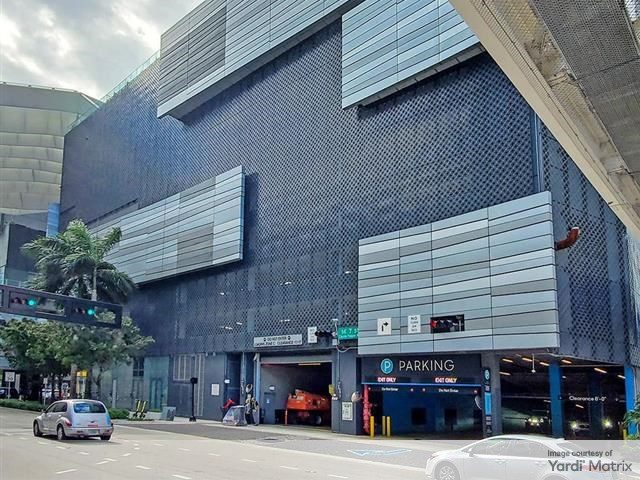CoreNet Update: New York in Mild Recession, But Real Estate Stays Afloat
Uncertain times are in store for New York City again as it braces itself for the aftermath of the tumultuous few weeks on Wall Street. Marisa Di Natale, a senior economist for Moody’s|Economy.com and John Powers, chairman of the tri-state region for CB Richard Ellis Inc., offered their macro and micro views on what to…
Uncertain times are in store for New York City again as it braces itself for the aftermath of the tumultuous few weeks on Wall Street. Marisa Di Natale, a senior economist for Moody’s|Economy.com and John Powers, chairman of the tri-state region for CB Richard Ellis Inc., offered their macro and micro views on what to expect at a luncheon hosted by CoreNet Global’s New York City chapter this afternoon. Di Natale noted that the U.S. is definitely in a recession, and has been since the fourth quarter of 2007. “We’re down 600,000 jobs, unemployment has gone from 4.4 percent to (approximately 6 percent) in August,” she said. Estimating that these numbers will peak next year, she said there is a chance for a prolonged period of job losses. However, Di Natale acknowledged that the recession is milder than those of 1990 to 1991 and 2001, looking at housing factors such as prices, construction starts and sale values. “We think we’ve hit the bottom of home sales, but until there’s a substantial uptick (in sales), prices will continue to decline until next summer.” Additionally, GDP growth will remain weak put positive, and will not return to the three percent growth rate until 2010. New York City, however, has seen a delayed recession compared to the U.S. overall. “A year ago, I thought we’d be in the middle or the end of a recession by now,” she said, attributing the holdup to reported Wall Street losses only now showing up in data. Ten thousand jobs may have been lost, but severance was not counted towards the job loss, and the lay-offs are only showing up now. Most financial-related industries are not adding or losing jobs, but real estate is still strong, she continued. Investment banking and security brokerages are faring the worse; the former has lost 7,000 jobs since August, and the latter has lost 7,000 jobs since last October. “These will have a significant ripple effect on the New York City economy,” she said, noting that lay-offs will also trickle down into connected information technology and law firm jobs. However, since the recession is much milder than those in the past, the market should see less an effect on vacancy rates. Office-occupier job losses in past recessions have caused as much as a 6 percent increase in vacancy, but more information technology and legal jobs will stay put this time around. Overall, Di Natale expects a loss of 70,000 jobs in the metropolitan New York area over the next year, but foresees a quicker rebound, although the area will be slipping out the recession a little later than the rest of the country. She noted that a severe recession would look like 2001, and there only a 5 percent chance of that versus a 25 percent chance of this remaining a mild recessions. However, that could change pending the continued shakeup of Wall Street that started last week. If a severe recession is indeed in the cards, the market may see job losses until 2011, much like what happened from 2001 to 2003. But unlike past recessions, this one is a little closer to home, Powers (pictured) noted. Overall, debt is more expensive at 300 basis points over Treasuries versus 100 basis points, and harder to find; leverage is down at 60 percent versus 80 percent; mezzanine debt is more expensive; underwriting is more conservative and there is more recapitalization before sales. “Even performing assets will have some trouble,” he said. Powers agreed with Di Natale that the recession is indeed milder. From 2000 to 2010, New York City hardly added to the net square feet available, therefore not creating oversupply. As of September 1, only 15 contiguous blocks of 250,000 square feet or more are available; in the recession of 2001, it was double that, with even more in the early 1990s. And although subleasing is expected to go up, he ventured that it would be no more than 3 percent. He expects that the impact from the layoffs in the financial sector will affect 1.05 million square feet, and that the Lehman Brothers, Merrill Lynch and AIG outcomes will put some space on the market. Rental rates will have a modest drop-off, but that is typical after recessions start; he saw a similar six month pattern in 2001, where rates went up for six months and then stayed flat or dropped off as people adjusted to the reality of the market. Space availability, which is currently at 9.3 percent, will go into the double digits and will not come down until 2010. Powers did note that the city has many positives going for it right now: peak rates and occupancy levels in hotels are not dropping, residential sales are flat or going up and residential rental rates are going up. However, he did express some uncertainty as the city moves out of its budget surplus from 2009 to 2011.





